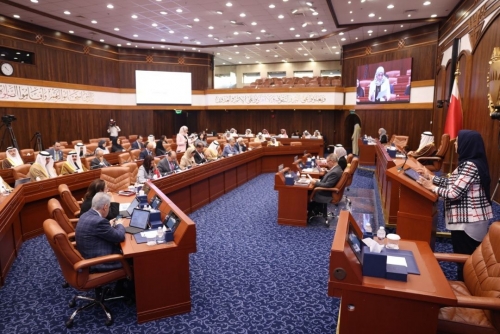Tech thieves beware!
TDT | Manama
Email: mail@newsofbahrain.com
Harsher penalties of up to two years in prison could await thieves who steal smartphones, laptops, or tablets in Bahrain if their crime involves personal data, under amendments backed by the Shura Council’s Foreign Affairs, Defence, and National Security Committee.
The committee has supported changes to the Penal Code that would treat thefts of mobile phones, laptops, and other gadgets containing personal or financial details more seriously.
The proposed law, tied to Decree No. (7) of 2024, amends the Penal Code first issued under Decree-Law No. (15) of 1976.
Under the proposed rules, taking a phone, tablet, or laptop would be treated as aggravated theft, with a minimum sentence of three months behind bars.
Sentence
If the thief intends to access sensitive data such as banking records or private photos, the sentence would start at one year.
The law would also cover those who keep lost or wrongly delivered electronic devices.
Depending on how serious the crime is and whether personal data is misused, offenders could face up to two years in prison, a BD500 fine, or both.
The Ministry of Justice, Islamic Affairs, and Waqf, the Ministry of Interior, and the Ministry of Transportation and Telecommunications all supported the proposed amendments.
They stressed the pressing need for legal shields in a world increasingly dependent on electronic devices.
International norms
Legal experts from the Shura Council’s Legislative and Legal Affairs Committee reviewed the proposed law and found it legally sound and in step with international norms.
Officials involved in drafting the amendments warned of the growing threat from tech-related crimes, which have become common worldwide.
Committee members said the changes would close a legal gap by imposing targeted penalties for tech thefts, which are currently dealt with under general theft laws.
Private details
They stressed that stolen gadgets often hold private details that could jeopardise a victim’s privacy, finances, and even livelihood if misused.
The proposed changes, they added, are a direct response to today’s growing reliance on technology for both work and personal life.
Current laws, they argued, must keep pace with modern realities.
The committee has now passed its recommendation to the Shura Council, which is expected to take a final vote on the amendments soon.
Related Posts

